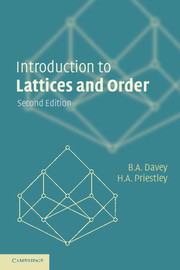One-fifth of the 101 million stroke survivors worldwide experience another stroke within the following five years. Research indicates that lifestyle risk factors account for 90% of stroke (similar to recurrent stroke) risk, and improving diet quality is a promising strategy(1). Synthesised research suggests that adopting a Mediterranean-style diet(2) with reduced sodium intake(3) can enhance cardiovascular health, which may be beneficial for secondary stroke prevention. Our previous ENAbLE trial, a co-designed telehealth diet and exercise intervention, demonstrated improvements in diet quality among stroke survivors. However, post-stroke effects (such as fatigue, hemiplegia, memory issues, aphasia, and dysphasia) along with poor culinary nutrition skills, limit the full adoption of the Mediterranean-style diet. Culinary nutrition combines cooking skills and nutrition knowledge to help individuals create nutritious and fulfilling meals. A recent scoping review revealed only two culinary nutrition programs designed for stroke survivors, with none co-designed specifically for Australian survivors. This research aims to co-design a Mediterranean-style diet based culinary nutrition program to enhance post-stroke nutrition. Using an Integrated Knowledge Translation model(4), three lived experience research partners and six clinical researchers engaged in the co-design process. Preliminary interviews with stakeholders highlighted gaps in current stroke care. We conducted two focus groups with potential end-users, including six stroke survivors and seven clinicians. Data were analysed thematically, and prototypes were developed iteratively with end-users. Consumers (lived experience research partners and end-users) identified a significant gap in practice during the early post-discharge period, emphasising the need for self-paced remote culinary nutrition resources. They identified several facilitators (e.g., simple recipes, easy translation of nutrition knowledge, aphasia-friendly design) and barriers (e.g., fatigue, muscle weakness, cooking for one or for a household) in meal preparation. Consumers noted that while recipe books reduce the cognitive load of meal preparation, no stroke-specific resources are currently available. As a result, we developed a co-designed recipe book titled Cook Well After Stroke, incorporating feedback from end-users. This book features Mediterranean-style diet recipes for both single-serving and household/batch cooking. It is designed with plain English, requiring minimal ingredients, equipment, and cooking skills. Recipes are highly adaptable to common Australian ingredients, encouraging users to repeat the recipes with available resources. It includes nutrition principles to create balanced meals, increase protein and vegetable intake, and reduce sodium consumption. Each section includes hints and hacks tailored to post-stroke effects, providing strategies for one-handed cooking, softer diet textures, and energy conservation. The recipe book will be integrated into a co-designed online cooking program, which will be trialled with stroke survivors.
